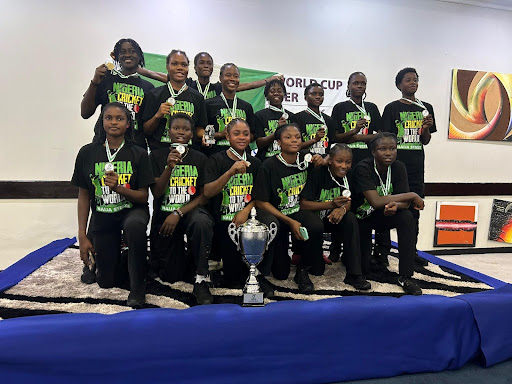

As we embarked on previewing and analyzing the teams for the just-concluded ICC U19 Women's T20 World Cup Africa Qualifiers, we at TheMiddleStump had high hopes for what promised to be a fascinating tournament. What we did not anticipate, however, was the way this tournament would unfold, leaving not only us but also cricket fans worldwide in utter amazement. In fact, this competition has shocked hundreds of thousands of enthusiasts across the globe. Few could have accurately predicted how these teams would finish by the end of the tournament. The tectonic plates of African cricket have shifted, and though we anticipated change, we could never have imagined how monumental that change would be.
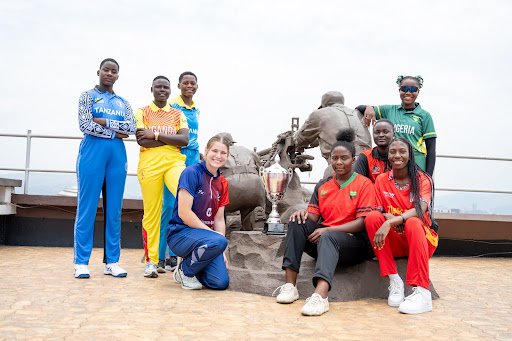
Nigeria: Africa’s Rising Giants
Our warmest congratulations go out to the Junior Female Yellow Greens of Nigeria, who, against all odds, clinched the coveted spot for the 2025 ICC U19 Women's T20 World Cup in Kuala Lumpur. This achievement was no fluke. Nigeria's growth over the past few years has been nothing short of remarkable. Cast your mind back to Gaborone 2022, where this very team won just two out of four games, beating only Malawi and Mozambique. They left those qualifiers heartbroken, but clearly, that pain was the catalyst for what we've seen now: a team transformed.
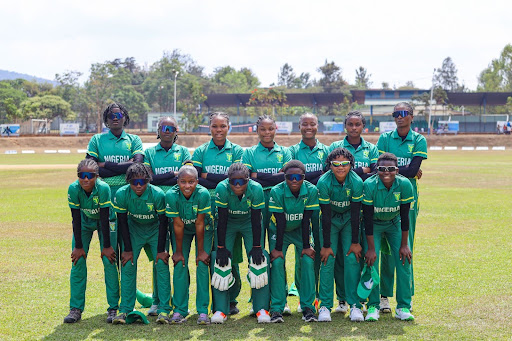
Nigeria’s path to this victory was not just a tale of talent, but also of grit and growth. In this tournament, they displayed a maturity that was conspicuously absent two years ago. The Yellow Greens mixed comfortable victories with gritty, hard-fought wins, showing a steely resolve that had been forged over the past two years. Their sensational bowling performances—anchored by players like Lillian Udeh and Anointed Akhigbe—were pivotal in navigating them through tricky matches, including a nervy win over Zimbabwe in the group stages. It’s clear that whatever work was put in behind the scenes between 2022 and 2024 needs to be written about in coaching manuals, taught in classrooms, and shared among associate cricketing nations.
Nigeria didn’t just qualify for the World Cup; they cemented their place as a team to watch on the global stage. As they carry the hopes of a continent to Malaysia, we can only imagine how much further they will go. One thing is certain: Africa will be rooting for them.
Kenya: The Giant Asleep
While Nigeria celebrated, Kenya, once a powerhouse of African cricket, found itself languishing at the wrong end of the table. It is hard to believe that this is the same country that once dominated associate cricket. But in Kigali, Kenya's performances raised more questions than answers, as they lost match after match in a display that can only be described as a shadow of their former selves.
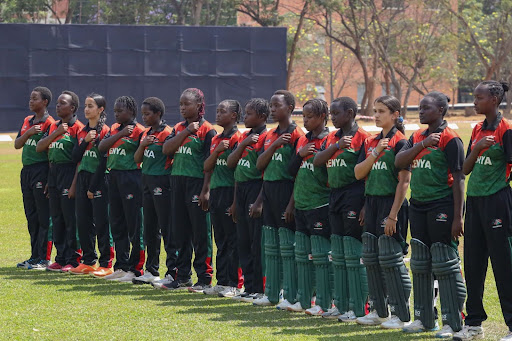
The warning signs were already visible during the previous round of qualifiers in Kigali, where Kenya, shockingly, lost to Malawi and had to settle for second place in their group. Many of us thought it was just a bad day for them, an anomaly in their otherwise respectable history. But in the final round of this competition, those cracks became a chasm. They failed to register a single win in the group stage, finishing last, before losing again to Malawi in the 7th place playoff—a team they would have once beaten without breaking a sweat.
What has gone wrong for Kenyan cricket? Has it been a slow erosion of talent, or are the underlying structures failing to support the development of young players? Whatever the case may be, the road ahead is long and steep. Kenyan cricket needs to rebuild, but with the lessons they've learned from this tournament, there's every hope that they will bounce back stronger. The game in Kenya is still beloved, and with the right attention, their young cricketers could once again find themselves at the forefront of African cricket.
Malawi: The New Name to Fear
If there’s one team that has captured the hearts of cricket fans across Africa, it is Malawi. Coming into these qualifiers, few expected them to make much of an impact. After all, it was only in Botswana 2022 that Malawi had assembled their first-ever U19 women’s team, and they managed just one win against Mozambique back then. But how things have changed!
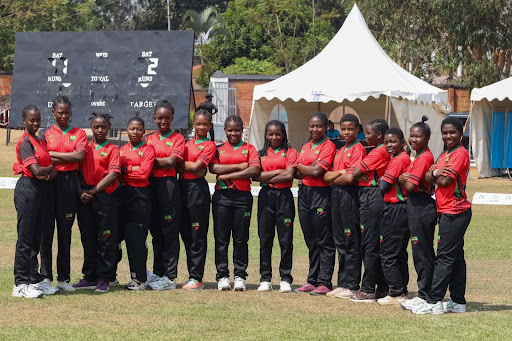
Fast forward two years, and Malawi’s young players have emerged as one of the stories of the tournament. Yes, they may not have won any of their group-stage matches, but it is the journey that deserves the spotlight. From being the underdogs, this team showed heart, tenacity, and a desire to compete at the highest level. In every match, they fought valiantly, culminating in an unforgettable win over Kenya in the 7th place play-off. Their bowling attack, led by the likes of Christina Bwanali, has shown that Malawi is not just here to make up the numbers—they are here to compete.
The future looks incredibly bright for Malawian cricket. The groundwork laid in 2022 is bearing fruit, and with continued development and support, this team could soon be a force to reckon with on the continental stage. Other nations will surely be wary of this Malawian side in the future.
Namibia: Falling Short of Expectations
Another team that fell well short of expectations was Namibia. Given Namibia’s cricketing pedigree, many had tipped them as one of the favorites to secure the World Cup spot. Their reputation in women’s cricket has been steadily growing, and they entered this tournament with the weight of expectation on their shoulders. But, sometimes, expectations can be burdensome, and Namibia found themselves struggling to meet them.
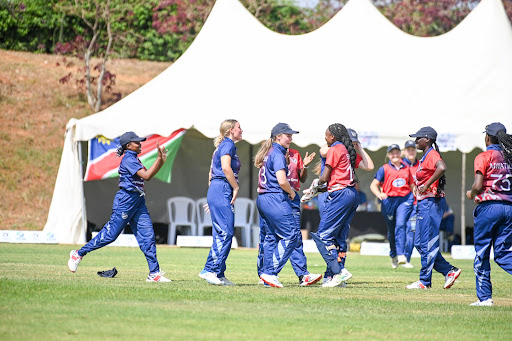
Their performances in the group stage were underwhelming, and they never seemed to find the rhythm needed to push through to the final stages. Their campaign ended with a 5th place finish after losing to Tanzania in the play-off—a disappointing outcome for a team with so much potential. Namibia will need to reflect deeply on this tournament, reassess their strategies, and come back stronger in future competitions. They have the talent, but this was a missed opportunity to show their true quality on the African stage.
Tanzania: The Fierce Fighters
Tanzania has always been known for their competitive edge, and this tournament was no different. They didn’t make it to the final, but their performances were spirited, showcasing some remarkable individual talents. Jenipher Kimari, in particular, stood out with her consistent contributions with both bat and ball.
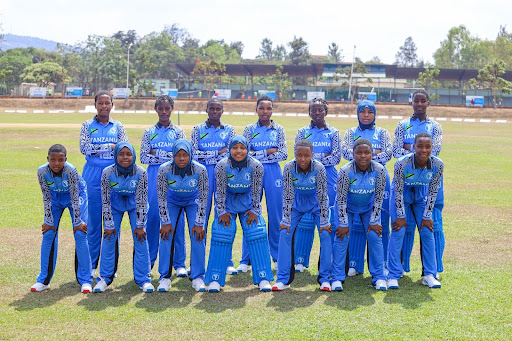
Tanzania fought hard, winning crucial matches and pushing opponents to the limit. Their 5th place finish, achieved after a solid victory over Namibia, was well-earned, though there’s a sense that they could have done even better. Tanzania is a team on the rise, and with a bit more consistency, they could soon find themselves challenging for top honors in future qualifiers.
Uganda: A Sobering Defeat
Uganda entered this tournament with high hopes. They had been strong contenders in past editions and were expected to challenge Nigeria and Zimbabwe for the World Cup spot. But their journey was one of heartbreak and missed opportunities. After a solid start, their campaign took a massive hit in the semi-final when they suffered a crushing 75-run defeat to Zimbabwe.
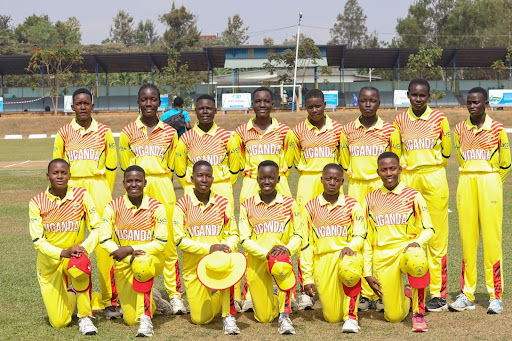
Uganda’s inability to perform when it mattered most was their undoing. They lost the third-place play-off to Rwanda, finishing 4th in the tournament—well below the expectations they had set for themselves. This tournament will be remembered as a learning experience for the Ugandans. They have the talent, but to reach the next level, they need to perform better under pressure.
Rwanda: The Work in Progress
This time two years ago in Gaborone, it was Rwanda who produced a commanding performance to defeat Tanzania and grab the ticket to the global showpiece in South Africa last year. They may have fallen short of the lofty standards they set for themselves but if we look at their performance in the context of the quality of the teams they faced, they have not done badly at all. They began their tournament with two comfortable wins over two of the biggest names in Africa - Kenya and Namibia, before losing to Uganda in the last group game. They had already qualified so the game was not necessarily all to play for. Their perennial rivals, Nigeria, got one over them in the semi finals but they left their most refreshing victory for the 3rd place play off as they maintained their composure to end the cliffhanger of a game in a 3-wicket victory over Uganda with just one ball to spare.
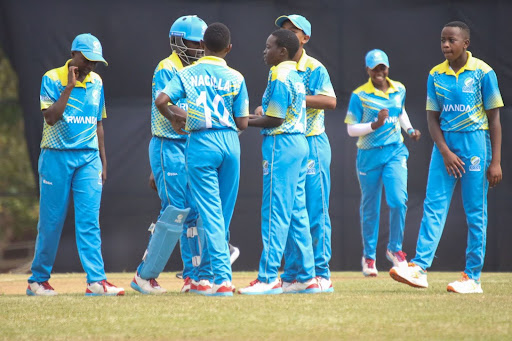
Rwanda had built a working template over the years and it has kept their female sides relevant through the years. Ending the tournament with a third-place finish may not mean much (considering they qualified to the World Cup in 2022), but knowing they did that despite the likes of Kenya, Uganda and Namibia in attendance is pointer to the fact that we have not seen the best of Rwandan cricket yet.
Zimbabwe: A Tale of Heartbreak
And then there’s Zimbabwe—perhaps the biggest heartbreak of the tournament. Zimbabwe came into the qualifiers as one of the favorites to qualify for the 2025 World Cup. They had the talent, the experience, and the confidence to go all the way. Their group-stage performances were impressive, highlighted by dominant victories and standout performances from players like Beloved Biza and Runyararo Pasipanodya. In the semi-finals, they put on a masterclass against Uganda, winning by 75 runs and booking their place in the final.
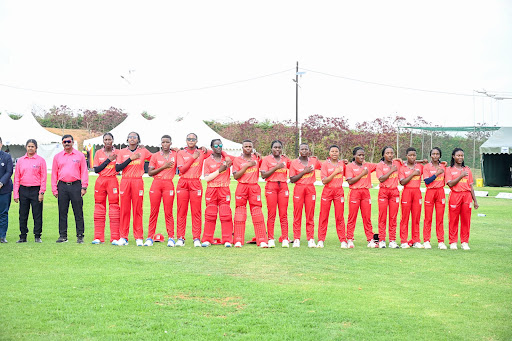
But cricket can be a cruel game. The final, against Nigeria, was poised to be a thrilling encounter, but fate had other plans. Rain halted the game after Zimbabwe had made a promising start in their chase, and with no further play possible, Nigeria advanced to the World Cup based on group-stage standings. Zimbabwe had come so close, only for the weather to snatch their dreams away.
It was a devastating blow for a team that had given so much throughout the tournament. But while they leave empty-handed, Zimbabwe can hold their heads high. They were fantastic throughout the tournament, and their time will surely come again.
Conclusion: A Tournament for the Ages
The 2024 ICC U19 Women's T20 World Cup Africa Qualifiers will be remembered as a tournament that defied expectations, created heroes, and delivered heartbreak. Nigeria emerged victorious, earning their place at the World Cup, but every team has a story to tell. Malawi proved that with heart and determination, anything is possible. Kenya and Namibia showed that even giants can fall, while Zimbabwe will rue what could have been.
African cricket is changing. The tectonic plates are shifting, and the continent is brimming with potential. The world is watching, and we can be sure that Africa’s cricketing future is bright.
